For boutique law firms across the United States, managing complex contract review workflows presents a unique challenge. Unlike large firms with dedicated legal operations teams, smaller firms often rely on a limited number of attorneys juggling client consultations, negotiations, and administrative work. The result? Contract review bottlenecks that delay critical deals.
Studies show that contract review accounts for nearly 40% of transactional legal work, significantly impacting law firm profitability and client satisfaction (Kobayashi, 2019). This is especially problematic for firms serving high-growth startups or SMEs, where turnaround time can influence deal closure. Hiring more full-time associates is not always financially feasible, particularly when labor costs in major U.S. legal markets continue to rise.
Enter legal outsourcing—a solution that allows firms to delegate repetitive, time-intensive tasks to skilled offshore analysts, without compromising on compliance or confidentiality.
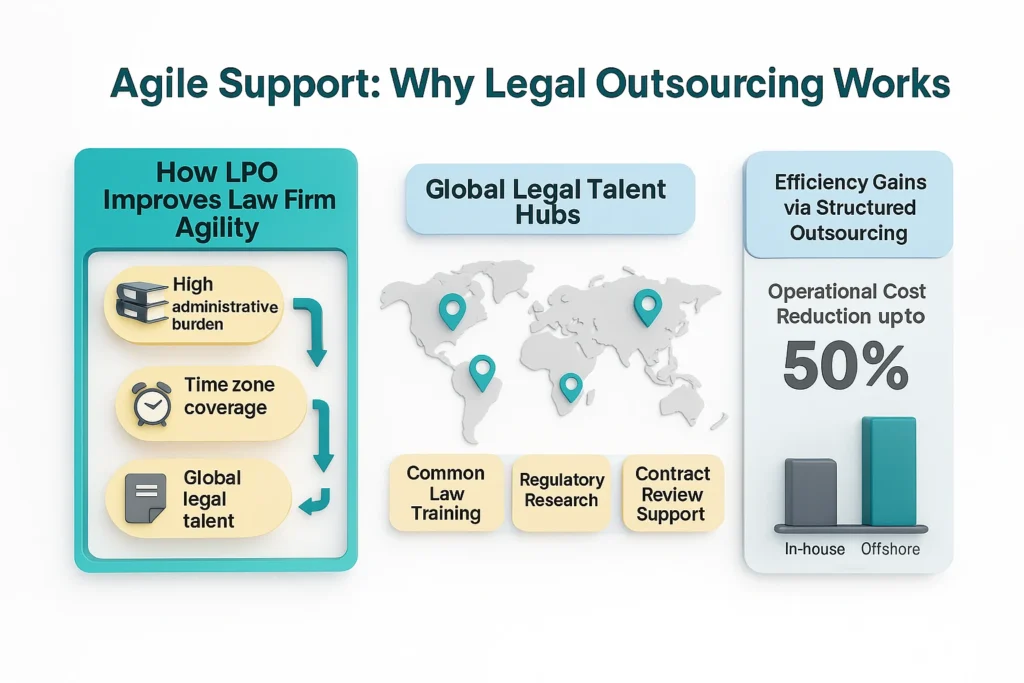
Legal outsourcing, also known as Legal Process Outsourcing (LPO), enables law firms to scale their capacity quickly by leveraging offshore paralegals and legal analysts. These professionals handle document-heavy tasks, freeing up senior attorneys for higher-value client work.
The model works because:
Research confirms that structured outsourcing can reduce operational costs by up to 50%, while maintaining or improving efficiency (Henderson, 2018). For firms under constant pressure to meet deadlines without hiring in-house, outsourcing isn’t just a cost play—it’s a strategic agility tool.
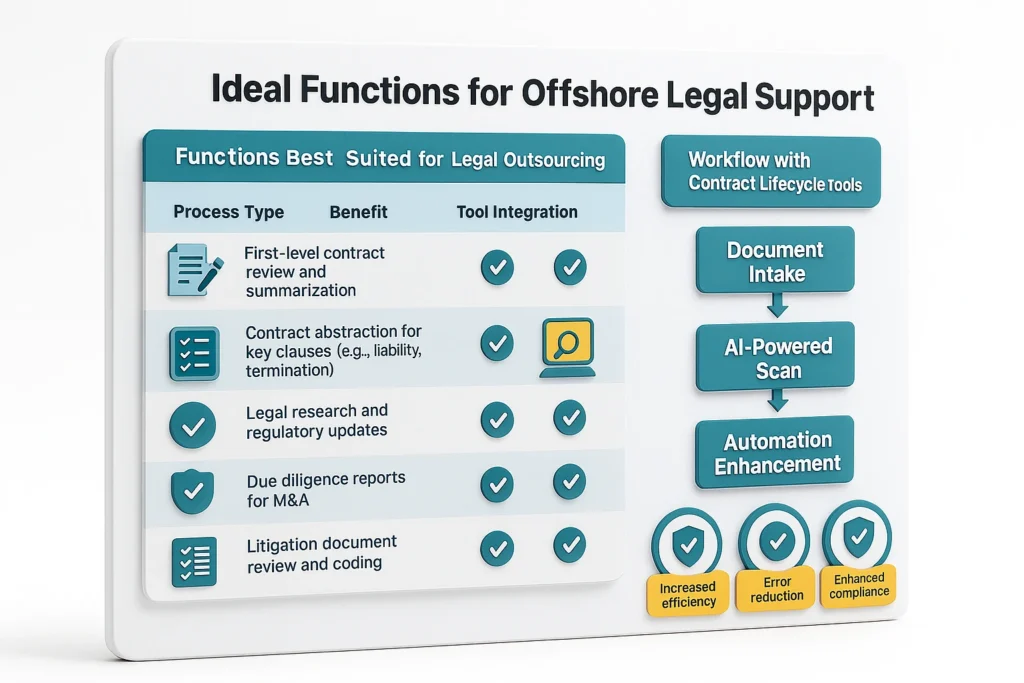
Not every legal task is suitable for outsourcing, but process-driven and repetitive functions can be effectively handled offshore. These include:
Offshore teams trained in contract lifecycle automation tools can further speed up workflows, reducing errors and improving compliance across the document review process.

Consider a boutique corporate law firm in New York specializing in commercial agreements. Facing increasing client demands but unwilling to inflate overhead, the firm partnered with an LPO India provider. Within six months:
Key to success was a hybrid model combining automation software for clause detection with human review for accuracy and compliance.
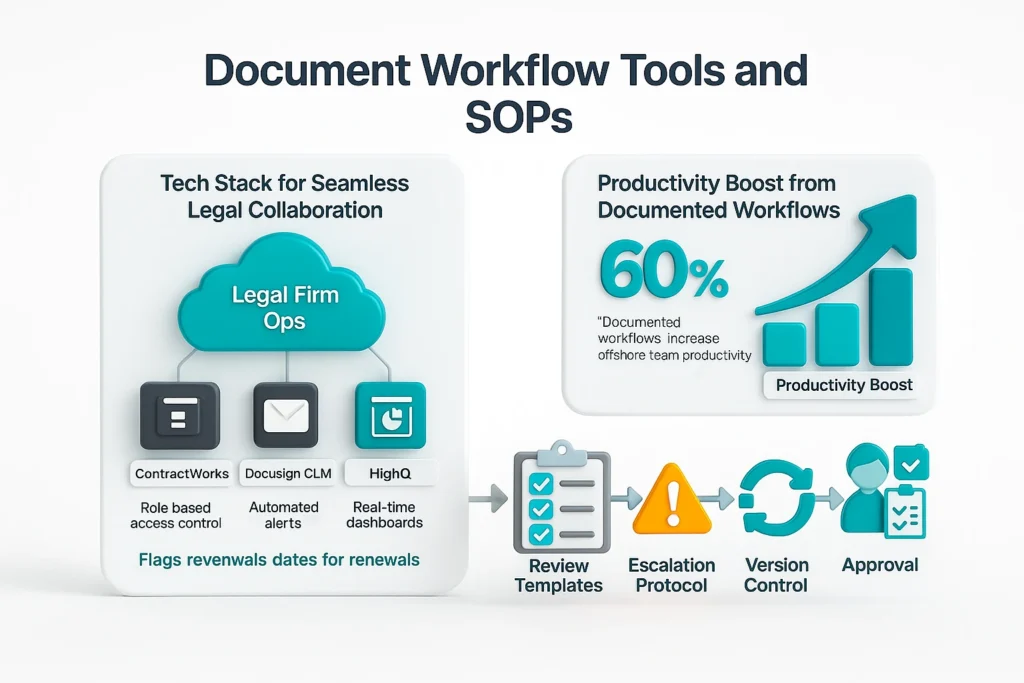
Technology acts as the backbone of successful legal outsourcing strategies. Tools like ContractWorks, DocuSign CLM, and HighQ enable law firms to integrate offshore analysts seamlessly. These platforms support:
In addition, robust Standard Operating Procedures (SOPs) help eliminate ambiguity. They define:
A study on distributed legal teams concluded that documented workflows improve offshore team productivity by up to 60% (Oshri et al., 2015).
Legal outsourcing introduces legitimate concerns about data privacy and compliance. Boutique firms must implement strict security frameworks that include:
Moreover, ABA Model Rules of Professional Conduct provide guidance on outsourcing ethics. When firms disclose outsourcing practices transparently and maintain direct oversight, ethical risks are mitigated (American Bar Association, 2020).
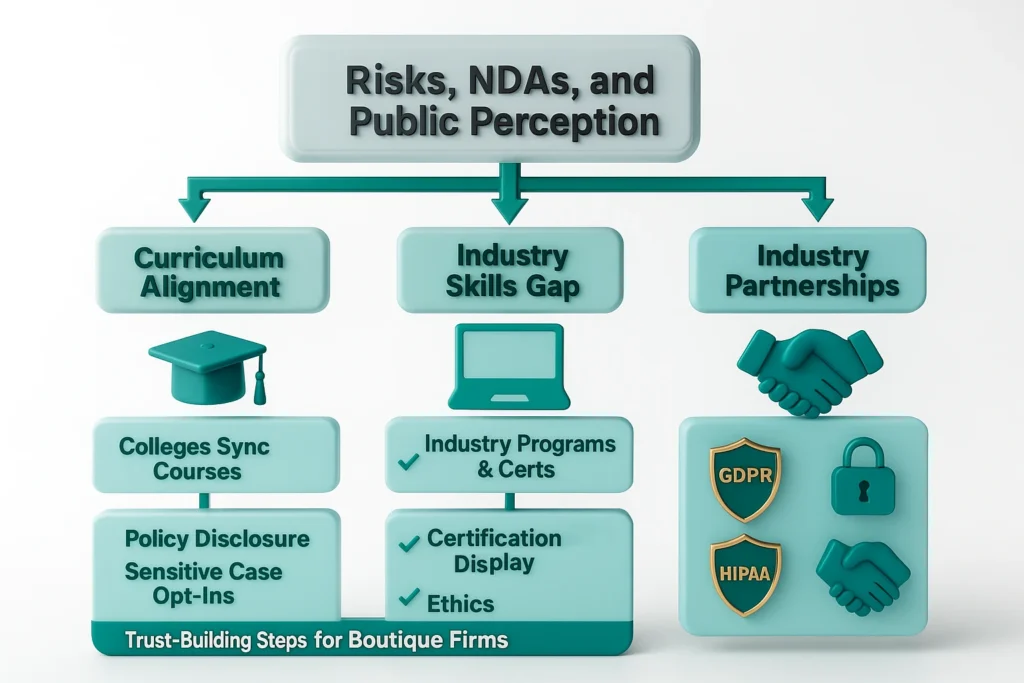
While legal outsourcing offers significant advantages, it also carries reputational risks. Some clients perceive outsourcing as a dilution of quality or confidentiality. To address this:
Transparent communication ensures that outsourcing is seen as a value-adding process, not a compromise.
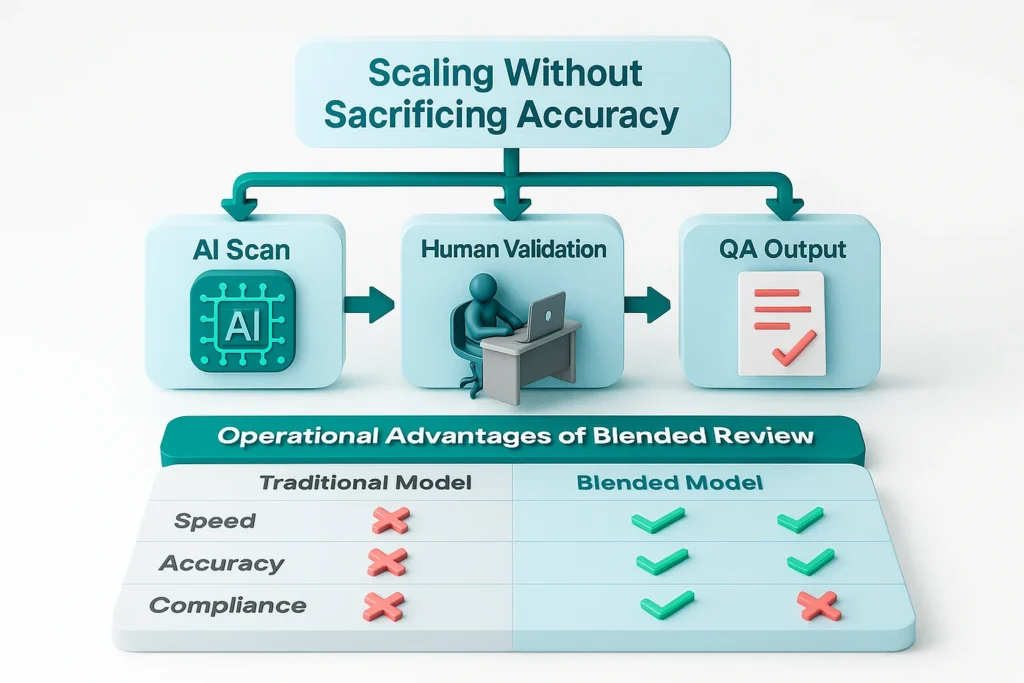
For boutique firms, accuracy is non-negotiable. A practical approach is blended review, where AI-powered tools handle initial contract scans and offshore analysts perform secondary checks. This ensures:
The result is a lean, scalable legal operation capable of competing with larger firms without ballooning expenses.
Legal outsourcing is more than a trend—it’s a structural shift in how boutique firms deliver value. By embracing offshore paralegals, leveraging contract lifecycle automation, and establishing airtight compliance protocols, small U.S. law firms can expand their service capabilities, control costs, and meet client expectations with speed and precision.
For firms navigating post-pandemic demands, LPO India and similar models offer the perfect balance between cost efficiency and legal excellence.
Kobayashi, B. (2019). The economics of contract review and legal process outsourcing.
https://doi.org/10.2139/ssrn.3459874
Henderson, W. (2018). Legal market dynamics and outsourcing trends. Indiana University Maurer School of Law.
https://doi.org/10.2139/ssrn.3159240
Oshri, I., Kotlarsky, J., & Willcocks, L. (2015). The handbook of global outsourcing and offshoring.
https://doi.org/10.4324/9781315731321
Sako, M. (2016). Outsourcing and offshoring legal services: The globalization of law.
https://doi.org/10.1017/CBO9781316492672
American Bar Association. (2020). Guidelines for ethical outsourcing of legal services.
https://www.americanbar.org/groups/professional_responsibility/
Join thousands of businesses leveraging offshore staffing to scale their operations globally
Expand effortlessly with My Offshore Employees - access top 1% offshore talent starting at just $3/hr or $600/month per FTE. No hidden fees, no compromises on quality. Your offshore employees work exclusively for you - ensuring focus, transparency, and real-time visibility into your projects. We combine smart automation and proven industry experience to deliver higher productivity, fewer errors, and tailor-made solutions for your business growth.

© 2022-Present MyOffshoreEmployees.com – A brand of iWebGenics Pvt. Ltd. (India)